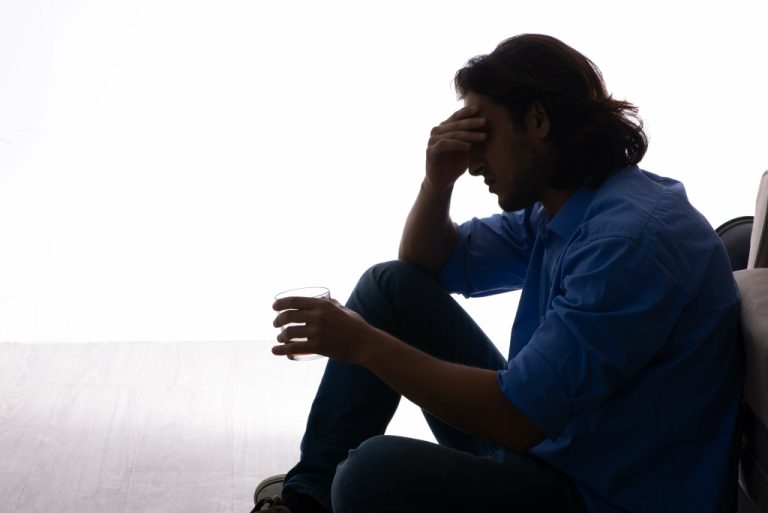What is a Relapse Prevention Plan?
By: Flaka Ismaili December 7, 2022
All treatments for substance use disorder (SUD), in a way, are intended to prevent relapse. The treatment called Relapse Prevention (RP), however, refers to a specific intervention. Someone may find it useful to imagine how their life will be without using drugs or alcohol. Additionally, they can think about the benefits of rebuilding relationships that may have become strained when a person was using substances.
People in recovery from addiction may relapse for several reasons. Old memories can trigger intense cravings for the substance https://ecosoberhouse.com/ of abuse. People with unhealthy coping habits may believe that using alcohol or other drugs is the only way to relieve stress.
Additional Relapse Prevention Workbooks and Worksheets
In particular, cognitive behavioral therapy (CBT) can help people overcome the fears and negative thinking that can trigger relapse. Returning to drug or alcohol use after treatment for substance use disorder is a part of many people’s recovery journey. A person may make a plan to prevent this with support from a healthcare professional. A relapse prevention model is a simplistic way of explaining what motivates a person to stay sober and what factors contribute to a slip-up.
- For example, in Relapse Prevention – and many of the cognitive-behavioral approaches – role playing is common.
- The presence of family members who care about their well-being empowers them to stay on track with their goals.
- Relapse occurs when you begin using a substance again after a period of sobriety.
- This statistic highlights the importance and prevalence of recognizing and preventing relapse in addiction recovery.
Activities, such as exercising or journal writing, can also provide a distraction when triggering events occur. Another coping skill is to create a list of consequences should you relapse. Often, this is enough to redirect your thoughts and get you back on track. It relapse prevention plan can be very beneficial to set up a daily ritual for maintaining physical health, such as a structured sleep schedule, a plan for balanced meals, and a fitness regime. Getting enough sleep and eating healthy can aid in setting up a strong foundation to build from.
We know how addiction feels, and we can show you how to get your life back.
Recognizing these emotions can help you seek other therapy or a recovery meeting if necessary. In this stage, you may not be actively feeding your addictive behavior. However, you’re inadvertently placing yourself at risk for a relapse. Preliminary evidence suggests Black and Latino individuals may not derive as much benefit from Relapse Prevention (RP) as White individuals.
Psychology Tools makes every effort to check external links and review their content. However, we are not responsible for the quality or content of external links and cannot guarantee that these links will work all of the time. However, it could help save lives, and all resources that help protect life and safety have great meaning and value.
Causes Of Addicts Relapse
It involves taking the time to tend to your mental and physical health, such as getting enough sleep, eating healthy food, and exercising regularly. In Relapse Prevention (RP), the clinician and patient work first to assess potential situations that might lead to drinking or using other drugs. These situations include, for example, social pressures and emotional states that could lead to thoughts about using substances, and ultimately to cravings and urges to use. A person may have started using alcohol or drugs to relax, unwind, or lift their mood.
- We strive to create content that is clear, concise, and easy to understand.
- Use of a substance delivers such an intense and pleasurable “high that it motivates people to repeat the behavior, and the repeated use rewires the brain circuitry in ways that make it difficult to stop.
- Whether you are trying to reach a goal or prevent a relapse, having a plan of action can make all the difference in success.
- Recovery from addiction requires significant changes in lifestyle and behavior, ranging from changing friend circles to developing new coping mechanisms.
When people don’t understand relapse prevention, they think it involves saying no just before they are about to use. But that is the final and most difficult stage to stop, which is why people relapse. If an individual remains in mental relapse long enough without the necessary coping skills, clinical experience has shown they are more likely to turn to drugs or alcohol just to escape their turmoil. Many factors play a role in a person’s decision to misuse legal or illegal psychoactive substances, and different schools of thinking assign different weight to the role each factor plays. They may not recognize that stopping use of a substance is only the first step in recovery—what must come after that is building or rebuilding a life, one that is not focused around use. In general, the longer a person has not used a substance, the lower their desire to use.
Learning from Setbacks
This plan is more than just a static piece of paper; it’s a dynamic tool that evolves with the individual, reflecting their unique journey and personal growth. Many successful treatment plans are specifically tailored to each individual. Relapse prevention and other treatment strategies may consider the person’s environment, level of motivation, severity of their addiction, co-occurring medical and mental health conditions, and other factors, too. When a person with a substance use disorder relapses, they need to take similar steps. A severe relapse may require inpatient treatment, but outpatient therapy may be appropriate for some people.

Learning how to make a relapse prevention plan and going through the process of creating a relapse prevention plan could be the difference between longer periods of sobriety and repeated relapse. Sometimes, this is the time to address and confront any underlying cause of your initial addiction. While many may want to address this sooner, people typically do not have the coping skills necessary to do so without increasing their relapse risk. Other goals of abstinence include personal self-care and development.
It can be due to various emotional, environmental, or social triggers. Cognitive behavioral skills refer to your ability to recognize thought patterns influencing your emotions and determining your behavior. Coping responses are behavioral responses to stressful situations. However, this does not mean that a person cannot recover from SUD or AUD. With a healthcare professional’s guidance, someone may be able to resume their treatment plan, modify it slightly, or try a different treatment plan that works better for them.
- Take care to clearly outline and write this down in your recidivism prevention plan.
- Withdrawal symptoms like nausea, shakiness, and sweating can be so difficult that you want to use drugs again just to stop them.
- It is common to hear addicts talk about chasing the early highs they had.
- Addiction is a brain disease and, as such, may involve disruptions to certain brain circuits and neural processes as a result of chronic drinking and/or drug use.










